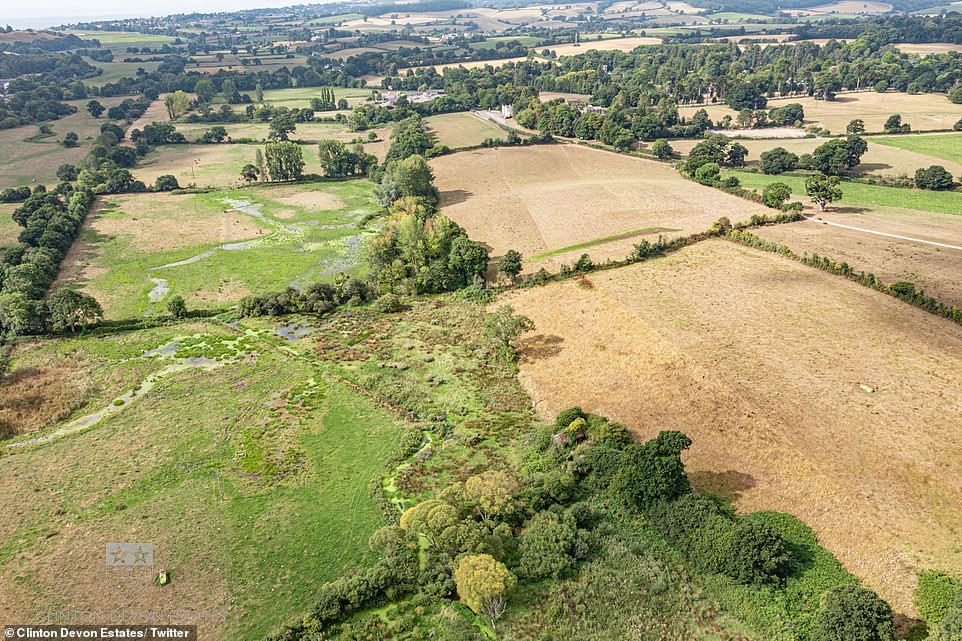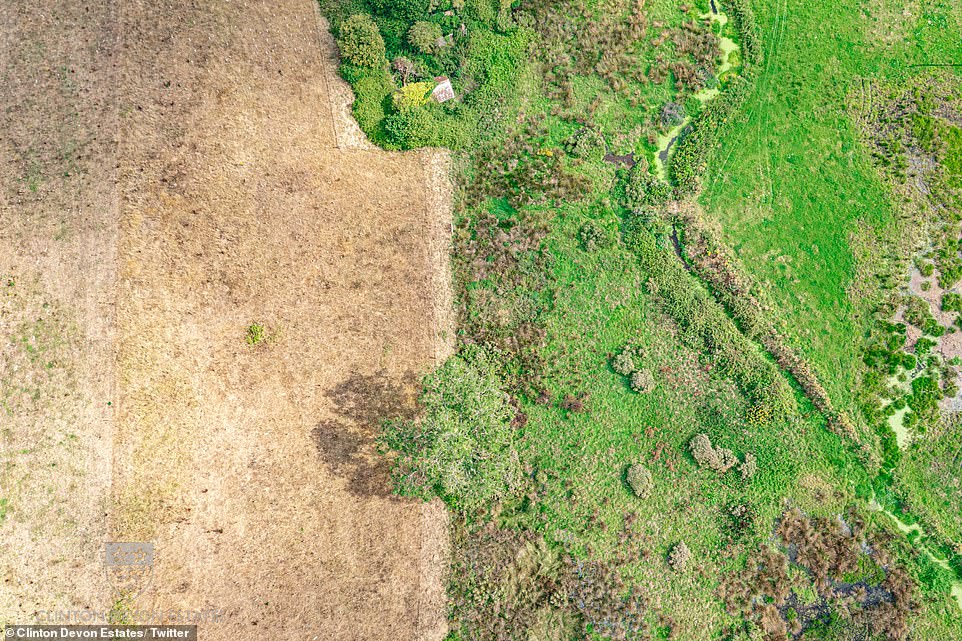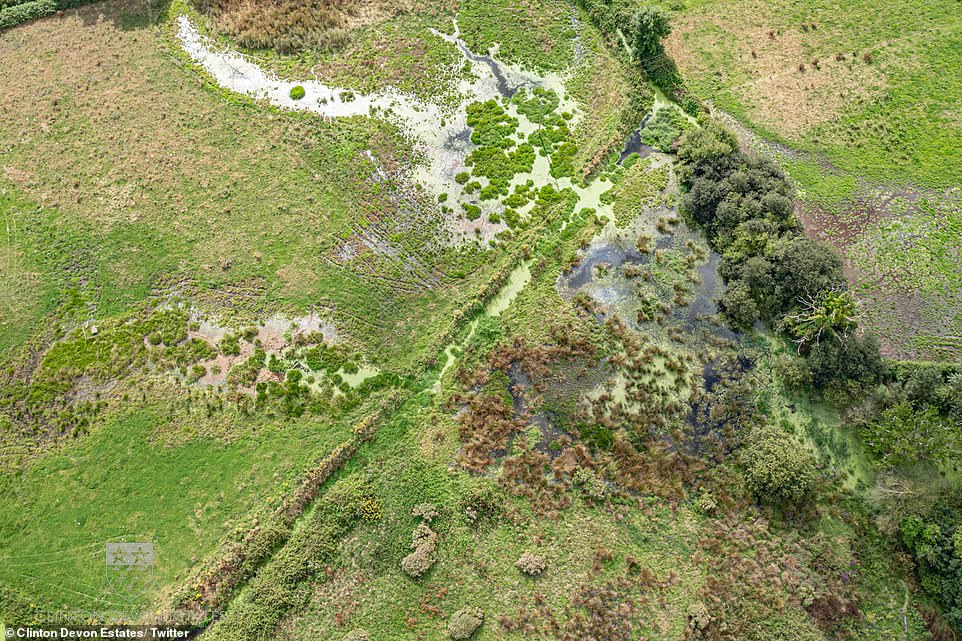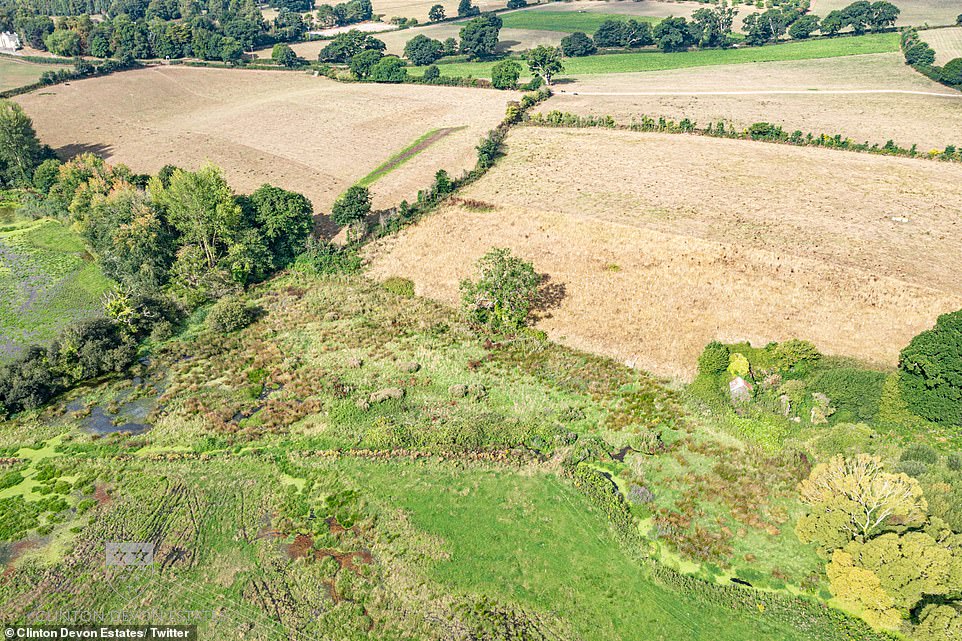
Beavers have helped transform part of the scorched South West English countryside into a nourished wetland by constructing a network of dams.
Drone footage captured by Clinton Devon Estates show how the beavers construction activities have kept an area of wetland in East Devon green and hydrated, compared to the dried up fields surrounding it.
This is despite the UK experiencing one of the hottest summers on record, with large parts of England declared to be in a state of drought, and the South West region one of the worst affected.
East Devon Pebblebed Heaths Ranger Ed Lagdon said: ‘It’s quite incredible to see this area, when conditions have been so challenging in recent weeks.
‘Beavers will change the environment around them and manipulate the conditions to suit them, and in this location, the beavers have used sticks and mud to create several dams which are now holding back large columes of water.

Drone footage captured by Clinton Devon Estates shows how the beavers construction have kept an area of wetland in East Devon green and hydrated. This is compared to the dried up fields immediately surrounding it




The footage shows a stark contrast between the two areas, with the dam network keeping the area on the right hydrated, whilst the area on the left shows the scorched fields caused by the heatwave
‘The water is up to two feet in some areas and is fantastic for wildlife such as birds and invertebrates.’
However the beavers are not a perfect solution to the recent drought, as the dam-building rodents can completely submerge some areas of farmland.
Clinton Devon Estates’ Head of Agriculture, Sam Briant-Evans, said: ‘We’ve lost about two hectares of the field as a grazing platform for our dairy herd – one hectare of this is now completely underwater.
‘The concern we have is if we move them on, they may move upstream which is closer to the main farm. It’s a bit of a conundrum for us as an Estate as we can see both sides of the equation.
‘There’s no clear solution. However, what this does highlight is that with the right management and by working with them, they can help in the adaption to climate change.’
From October it will become illegal to disturb, harm or kill beavers thanks to new government legislation giving legal protection to the species in England.






Beavers and their dam networks do come with some drawbacks, as some areas are completely submerged in water. This means that farmers may be unable to use some of their land for livestock grazing






The area was part of an Exeter University study to explore the impacts beavers have on the Devonshire countryside for five years, which concluded in 2020
This followed a consultation held by the Department for Environment, Food and Rural Affairs on the future of beavers, and plans were made to reintroduce them into the wild in a bid to help tackle climate change.
The area was part of an Exeter University study to explore the impacts beavers have on the Devonshire countryside.
John Varley, Clinton Devon Estates Director, said: ‘In the right place, beavers can bring about major benefits for wildlife, then environment and society, including increased biodiversity.
‘During the project we learnt a great deal about these benefits, such as cleaner water, natural flood management and habitat creation.
‘We believe that is properly funded by the Government, the cost of managing beavers is far outweighed by the social and economic benefits to nature and the public.’